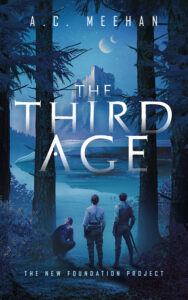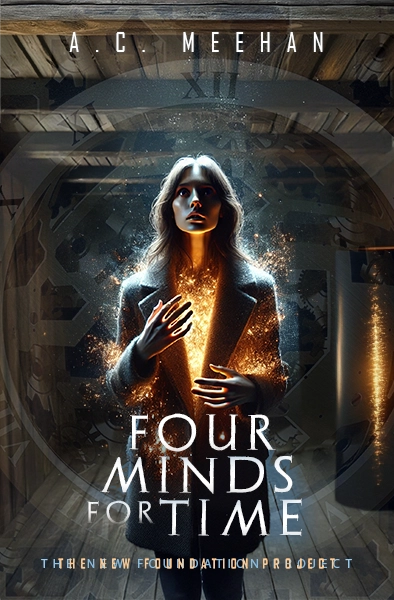Since The Third Age came out late in November, I’ve gone back to paying attention to my Amazon dashboard, which tells me how many copies have been ordered and so on. It’s exciting—a thrill to know that people are interested in reading the book. Mine are not big numbers, at least not yet, so I hardly need a sophisticated reporting tool, but it’s interesting to see how it works. And of course it feels good when the number increases. It’s really not about the sales, but that’s the best proxy I have for the number of readers I’ve reached. For a week, I had a couple of Amazon ads running again to try to get some visibility; that meant spending time on the advertising dashboard, too, looking at “click-through rate” and “cost per click” and comparing that to sales. (The economics aren’t right at this point, so I stopped the ads.) This part of the process seems like it’s all about the numbers.
It’s easy to get caught up in it, but I’m trying not to. I know I’m not doing enough marketing, and the dashboards reflect that. By the numbers, I’m a long way from being a “successful” author.
During the writing phase, I watch other numbers. Scrivener (the software I use) provides a bunch of writing statistics that are interesting, including the word count. The numbers can be tyrannical there, too. There are well-established guidelines for word count in different genres, with the attendant advice that ignoring them makes a book less marketable. (It’s probably true, especially for printed books, but when I buy a book online, I don’t dip into the “product details” to see how many pages it is. It’d be interesting to know how many people do.) Having blown past the word-count recommendation with both books (2024 New Year’s Resolution), there’s a limit to my success there, too.
The numbers don’t lie, but they don’t tell the whole truth.
For indie authors—especially those who haven’t “broken through” yet—there are other ways of measuring success that are equally valid, even if they are less objective, less lucrative, and more personal. Beyond the dashboard, the success of a book really comes down to the judgment of two people—the writer and the reader. From the writer’s perspective, success comes from the creative effort. Is it the story or truth I wanted to tell? Am I satisfied with the way I’ve told it? From the reader’s perspective, success is in the effect: am I glad I read this?
These assessments aren’t very conducive to charts and trend lines and ratios.
I suppose one could make an argument that readers’ ratings provide a metric for one side of it, in two ways. First, the number of posted reviews for a book is a critical social marker in the marketplace. A high rating after three reviews isn’t the same as a high rating after three thousand. That’s why authors beg for readers to post reviews. Second, the rating gives a general sense of the aggregate reader experience—but it’s imperfect. There’s no standard interpretation of the ratings, at least on Amazon. One reader may rate based on quality while another rates based on enjoyment, and they may give different weight to each “star.” (And there are the lovely people who go around giving out unexplained one-star ratings to lower the overall, just for kicks—a little bit of human behavior I simply can’t explain.) Plus, Amazon has its own way of weighting the ratings, which I think is intentionally complicated, so the overall rating is nothing like an “average.” So that number comes with quite a few caveats.
Only the author can know how well she succeeded in meeting her intent, and it’s not a question that’s asked very often, other than in creative writing circles. For the question of a book’s success with readers, the answer that matters most to the author isn’t found in numbers. It’s in words: the encouraging and supportive words of friends, the enthusiastic words of fans, and the honest opinions shared in reviews. (Many thanks to every reader who has taken the time to share feedback, whether publicly or privately!)
I’m not saying the hard numbers don’t count. Sales are good news, effective ads are helpful, and high ratings are incredibly gratifying. But for an independent author who writes for the love to it, feeling good about the result of all the effort and knowing that there are people who are glad to have read the book is real reward.




